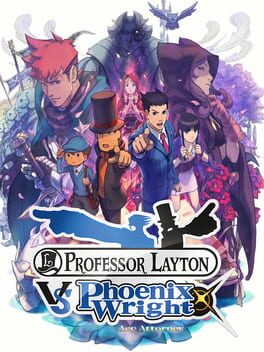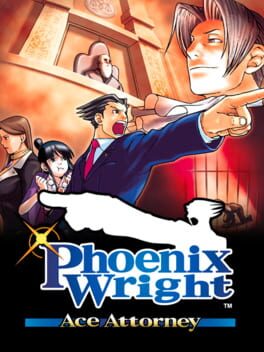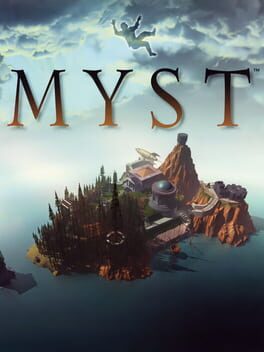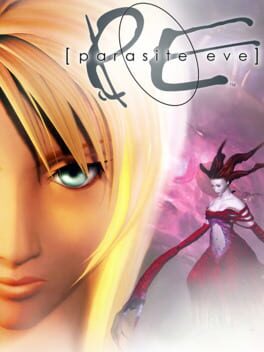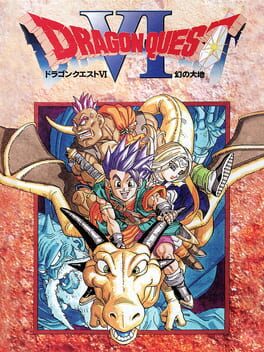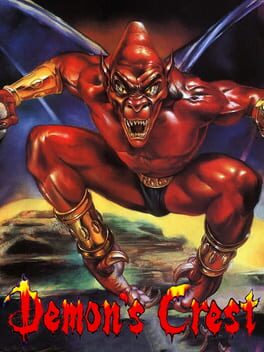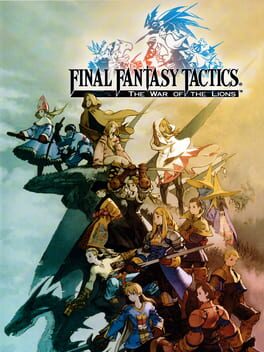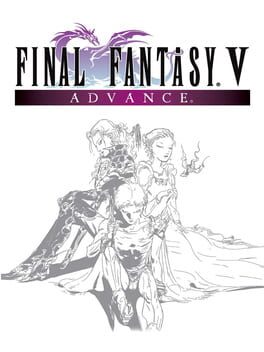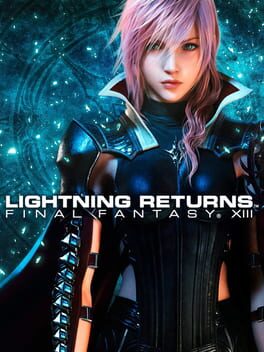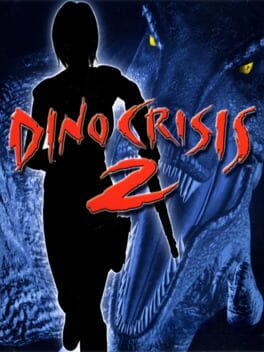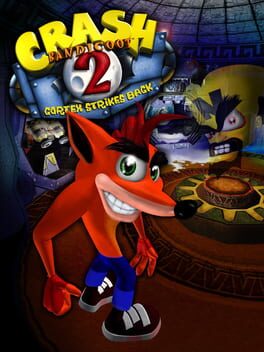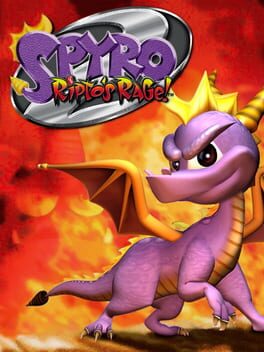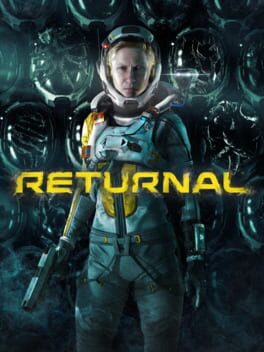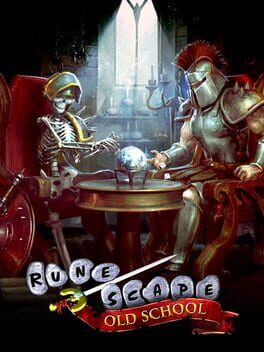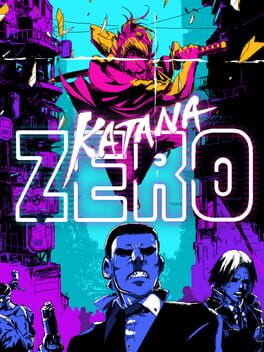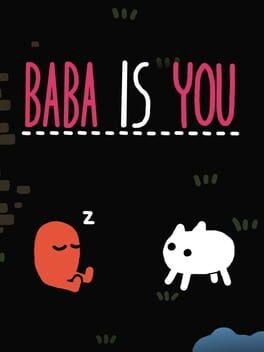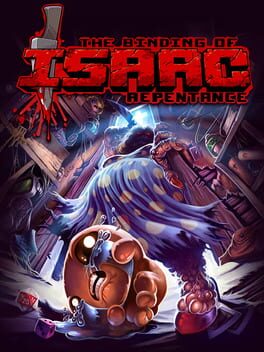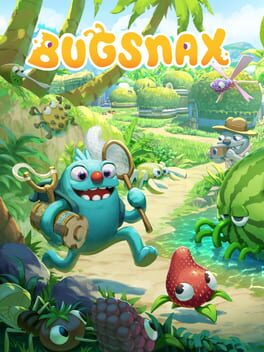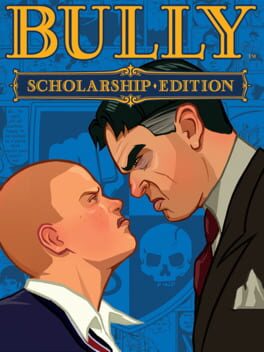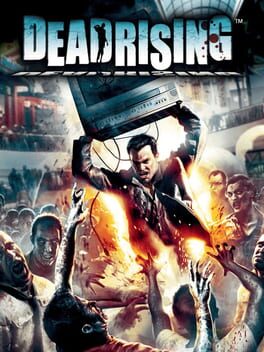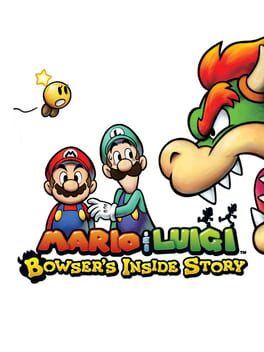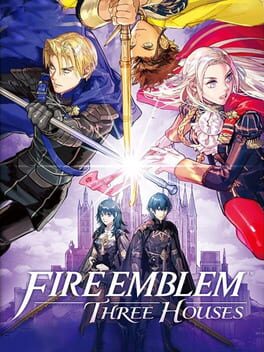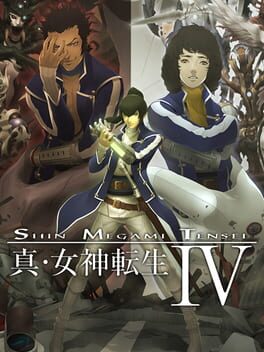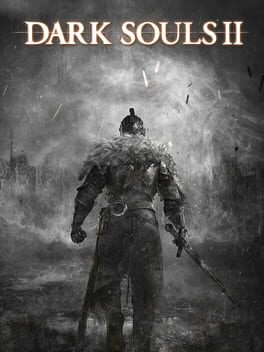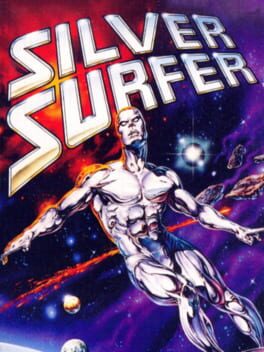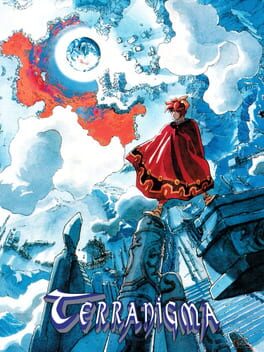Radiohans
96 reviews liked by Radiohans
Today is my birthday! And for such an occasion, me and my bestie are playing through the Ace Attorney trilogy, in what is the first revisit I've had to the original games since I was a child
Anyone who knows me knows the importance the AA trilogy had in my early years. As an adult, I'm somewhat forced to view the game in a different manner, but I can also now look back to see the purpose this held to me, in the past. To be a child in the western world is to be ignored, I think. Especially a child like me who could understand these things more than most. Adults play little lords who can offer no refuge from the agony they bring, purposeful or not. It always seemed to me that everyone was making base mistakes that I could never fathom, that reflected off them and burned into me because children have no say in anything that goes on around them. And I could never understand their actions- I could never understand the screaming, I could never understand the deeply ingrained violence, I never understood why no one listened or could even parse things that were immediately obvious to me. Or why no one felt spurred to change. For years, I just ghosted the world feeling like one big tear all the time, very alone, but I would rather be alone than be with people like that. But I never forgot it, the extreme frustration of being that child. The child who is forced into situations with no voice and no autonomy, getting punished when I myself could not say anything back, lashing out and being unable to convey my desperation. Its pure bile and anger to be there.
I had so many feelings and thoughts about this growing up, the above can only be a tame simplification of many years of displacement. But one day, I caught a glimpse of a weird lawyer game on my shitty little ipod's app store in 2013, and things kind of changed. As I played, suddenly, I could see what it was like to have a voice. I could see what it was like to have friends, to find a family. I was introduced to a manner of things through Ace Attorney, a new manner of thought even, which at the time felt very cathartic to me. It reinforced a conviction that I've held since I could remember and I could see myself a little in it, sometimes. It was a comforting space. As an adult who knows more about the world than I did then, the writing isnt so mind-blowingly fantastic. But boy, as a child was it sure fucking incredible. To shout your objections and have pure, undeniable proof of what you meant at terrible people who otherwise would never see it. It was the spark of that more than the actual meat of it.
As for this game itself, it's more about what it did for me rather than what it is. To encourage thinking for ones self, to encourage that faith in an informed conviction. And that which fueled my fire for creative work, that I am still drawimg today. I talked about this a lot in my aai2 review, and I will talk about it again, but the introduction of Miles Edgeworth resonated with me so much back then. Who doesnt want to watch their shitty father bash their head into a wall- but that meant so much to me then. Actually, I forgot that this character largely introduced the concept of homosexuality to me. I would have figured myself out sooner or later, as I would with all these things, but at the very least I finished this game back then with an appreciation for a masculine demeanor and a strong need for a fitted suit.
I'm kind of rambling, and not well, but its my birthday so I'm allowed to. In present times, I'm noticing many spelling errors and sometimes a lacking of tone. And sometimes I feel like it relies too much on a joke so that the whole thing comes off as clowny, but I also feel like it might just be the english translation that made things this way. This was the first of its kind after all, and I've seen how the series has grown, so I can cut it some slack. Turnabout Goodbyes and Rise from the Ashes are still fantastic cases, and what's been even more fun than running down memory lane is watching my best friend experiencing it with me for the first time. I cant explain how much I absolutely love every piece of these games, though. They feel like a part of me, and I'm fairly proud of that. Its been a blast, and I cant wait to rediscover the rest of the series again.
Dont forget DL-6!
Anyone who knows me knows the importance the AA trilogy had in my early years. As an adult, I'm somewhat forced to view the game in a different manner, but I can also now look back to see the purpose this held to me, in the past. To be a child in the western world is to be ignored, I think. Especially a child like me who could understand these things more than most. Adults play little lords who can offer no refuge from the agony they bring, purposeful or not. It always seemed to me that everyone was making base mistakes that I could never fathom, that reflected off them and burned into me because children have no say in anything that goes on around them. And I could never understand their actions- I could never understand the screaming, I could never understand the deeply ingrained violence, I never understood why no one listened or could even parse things that were immediately obvious to me. Or why no one felt spurred to change. For years, I just ghosted the world feeling like one big tear all the time, very alone, but I would rather be alone than be with people like that. But I never forgot it, the extreme frustration of being that child. The child who is forced into situations with no voice and no autonomy, getting punished when I myself could not say anything back, lashing out and being unable to convey my desperation. Its pure bile and anger to be there.
I had so many feelings and thoughts about this growing up, the above can only be a tame simplification of many years of displacement. But one day, I caught a glimpse of a weird lawyer game on my shitty little ipod's app store in 2013, and things kind of changed. As I played, suddenly, I could see what it was like to have a voice. I could see what it was like to have friends, to find a family. I was introduced to a manner of things through Ace Attorney, a new manner of thought even, which at the time felt very cathartic to me. It reinforced a conviction that I've held since I could remember and I could see myself a little in it, sometimes. It was a comforting space. As an adult who knows more about the world than I did then, the writing isnt so mind-blowingly fantastic. But boy, as a child was it sure fucking incredible. To shout your objections and have pure, undeniable proof of what you meant at terrible people who otherwise would never see it. It was the spark of that more than the actual meat of it.
As for this game itself, it's more about what it did for me rather than what it is. To encourage thinking for ones self, to encourage that faith in an informed conviction. And that which fueled my fire for creative work, that I am still drawimg today. I talked about this a lot in my aai2 review, and I will talk about it again, but the introduction of Miles Edgeworth resonated with me so much back then. Who doesnt want to watch their shitty father bash their head into a wall- but that meant so much to me then. Actually, I forgot that this character largely introduced the concept of homosexuality to me. I would have figured myself out sooner or later, as I would with all these things, but at the very least I finished this game back then with an appreciation for a masculine demeanor and a strong need for a fitted suit.
I'm kind of rambling, and not well, but its my birthday so I'm allowed to. In present times, I'm noticing many spelling errors and sometimes a lacking of tone. And sometimes I feel like it relies too much on a joke so that the whole thing comes off as clowny, but I also feel like it might just be the english translation that made things this way. This was the first of its kind after all, and I've seen how the series has grown, so I can cut it some slack. Turnabout Goodbyes and Rise from the Ashes are still fantastic cases, and what's been even more fun than running down memory lane is watching my best friend experiencing it with me for the first time. I cant explain how much I absolutely love every piece of these games, though. They feel like a part of me, and I'm fairly proud of that. Its been a blast, and I cant wait to rediscover the rest of the series again.
Dont forget DL-6!
I have no idea why, but for some reason, every time I play one of Tour's tracks, I nail it, I’m not even close at being the best Mario Kart player at my friend group but I always land first in those… never in my life I’ve been so disappointed for being good at something.
This was actually the very first thing I played this year, going through all the cups with some friends on the night of January 1st, however, I decided to hold on talking about since I knew I wanted to get gold and experience them myself alone ‘cause I l knew that playing one after the other in one night while having a laugh will pals would be a completely different experience from slowly taking the courses in and playing them all in other while trying out the online and even more of the co-op, and boy oh boy was I right.
One thing I’ll give the Booster Course Pass as a whole is that is a joy to play through with friends, I mean duh, this is Mario Kart after all, but still, compared to other games in the series or even base Mario Kart 8/ 8 Deluxe, this is one of the few times where it feels wrong to not play at least three or four cups in succession when being with some pals. At first, I thought the reason for it was simply because of the novelty of the but after playing this whole thing in order I see the hold this can have; it’s almost addicting playing this whole thing, and ironically, I feel partly of that is because how poorly it starts off.
Wave 1 of the DLC is the single most underwhelming Mario Kart experience I’ve ever had; the track selection is mediocre at best and actually baffling at worst, visually it’s a far cry from the base experience —tho that can be said about the whole DLC or at least most of it, but it does get better as it goes on so there’s that—, some of the changes in the returning courses either don’t make anything to make them more interesting or at times they are for the worst, and to be completely honest, they couldn’t have picked a worst selection of courses from Tour to start things off, the first impression they give is abominable… but it actually gets real good real fast.
I imagine those that paid for the DLC day one must have had the sour taste way longer, but as someone that played the whole thing at its complete state, it’s super surprising just how much everything improves, to the point that by Wave 3 and onwards, the only Cup I’d call ‘’weak’’ is the Cherry Cup, and even then, it’s still pretty fun at times.
The selection of returning tracks gets better and better, the visuals and specially the sounds are even more of a joy with each passing cup, hell, even tho I started this review mocking them, some of the later Tour tracks were pretty stellar! And we even get some new playable characters which, in my opinion, round the roster perfectly, and I couldn’t be happier to finally see ma boi Wiggler playable again, and we finally have Petey and King Boo in the same game again! The boys, together at last!
The new courses couldn’t have surprised me more for the better oif they wanted to; there are some on the weaker side like the Ice Cream one, but Yoshi’s Island alone is probably in my top 5 of favorite tracks in general, and hell, as much shade as I’ve thrown Wave 1, Ninja Hideaway isn’t that far off either, and it alone makes the first two cups much more bearable.
The joy of returning to the Rainbow Courses of old, seeing so many new places and the returning ones given some pretty amazing changes (running on the rails of Kalimari Damazy was simply amazing), there’s something in here that shows nothing but care and passion, and makes me wish they could have had more time in the oven from the start, ‘cause most of this is truly excellent.
There are still flaws; it relays too much of city courses, every GBA course remake feels like a flip coin between it being the best thing ever or total bullshit, there are some major omissions while also other tracks that would have benefited from some changes… but at the same time, no other collection of tracks has left me and my friends wanting for more, to play more, to see more great courses or the promise of better ones in future cups.
At worst is middling or disappointing, but at best is stellar and pure fun, kinda makes me wish we also go more Battle Courses honestly, we got a entire race course based on a bathroom, so imagine the possibilities!
Also, now that the URSS is canon in the Mario Universe, by proxy that means all bootleg Mario games released on the Dendy also are. Sorry, I don’t make the rules, Somari will appear in Mario Kart 9 for sure…
This was actually the very first thing I played this year, going through all the cups with some friends on the night of January 1st, however, I decided to hold on talking about since I knew I wanted to get gold and experience them myself alone ‘cause I l knew that playing one after the other in one night while having a laugh will pals would be a completely different experience from slowly taking the courses in and playing them all in other while trying out the online and even more of the co-op, and boy oh boy was I right.
One thing I’ll give the Booster Course Pass as a whole is that is a joy to play through with friends, I mean duh, this is Mario Kart after all, but still, compared to other games in the series or even base Mario Kart 8/ 8 Deluxe, this is one of the few times where it feels wrong to not play at least three or four cups in succession when being with some pals. At first, I thought the reason for it was simply because of the novelty of the but after playing this whole thing in order I see the hold this can have; it’s almost addicting playing this whole thing, and ironically, I feel partly of that is because how poorly it starts off.
Wave 1 of the DLC is the single most underwhelming Mario Kart experience I’ve ever had; the track selection is mediocre at best and actually baffling at worst, visually it’s a far cry from the base experience —tho that can be said about the whole DLC or at least most of it, but it does get better as it goes on so there’s that—, some of the changes in the returning courses either don’t make anything to make them more interesting or at times they are for the worst, and to be completely honest, they couldn’t have picked a worst selection of courses from Tour to start things off, the first impression they give is abominable… but it actually gets real good real fast.
I imagine those that paid for the DLC day one must have had the sour taste way longer, but as someone that played the whole thing at its complete state, it’s super surprising just how much everything improves, to the point that by Wave 3 and onwards, the only Cup I’d call ‘’weak’’ is the Cherry Cup, and even then, it’s still pretty fun at times.
The selection of returning tracks gets better and better, the visuals and specially the sounds are even more of a joy with each passing cup, hell, even tho I started this review mocking them, some of the later Tour tracks were pretty stellar! And we even get some new playable characters which, in my opinion, round the roster perfectly, and I couldn’t be happier to finally see ma boi Wiggler playable again, and we finally have Petey and King Boo in the same game again! The boys, together at last!
The new courses couldn’t have surprised me more for the better oif they wanted to; there are some on the weaker side like the Ice Cream one, but Yoshi’s Island alone is probably in my top 5 of favorite tracks in general, and hell, as much shade as I’ve thrown Wave 1, Ninja Hideaway isn’t that far off either, and it alone makes the first two cups much more bearable.
The joy of returning to the Rainbow Courses of old, seeing so many new places and the returning ones given some pretty amazing changes (running on the rails of Kalimari Damazy was simply amazing), there’s something in here that shows nothing but care and passion, and makes me wish they could have had more time in the oven from the start, ‘cause most of this is truly excellent.
There are still flaws; it relays too much of city courses, every GBA course remake feels like a flip coin between it being the best thing ever or total bullshit, there are some major omissions while also other tracks that would have benefited from some changes… but at the same time, no other collection of tracks has left me and my friends wanting for more, to play more, to see more great courses or the promise of better ones in future cups.
At worst is middling or disappointing, but at best is stellar and pure fun, kinda makes me wish we also go more Battle Courses honestly, we got a entire race course based on a bathroom, so imagine the possibilities!
Also, now that the URSS is canon in the Mario Universe, by proxy that means all bootleg Mario games released on the Dendy also are. Sorry, I don’t make the rules, Somari will appear in Mario Kart 9 for sure…
Man, they don’t make ‘em like they used to.
For all this time, I mainly avoided the whole club aspect of this expansion pack thinking that that’s all it really added. Eh, whatever!! Maybe I don’t want my Sim to enjoy group outings with friends. But then you pull yourself back a little bit and you realize that this pack is like the main reason why there’s any LIFE in the LIFE SIMULATION game at all. I was a fool, but now.. Now I am with my tribe. In terms of completionist content for my own sick pleasure, there’s just 1 new skill and 1 new aspiration so that part is whatever. It's the actual gameplay elements that shine the brightest here though.
No, really. Arcade machines, dance floors, foosball tables, bar nights, dance clubs, cafes, civilization itself? All of that was added in this pack and it kinda makes me wonder what on God’s green Earth were Sims doing before it. Watching paint dry? Slowly aging until the sweet release of death between the walls of their solitary home? While it’s still a bit of a pain in the ass, the group mechanic allows you to control multiple Sims at once to get them to actually interact together while out. Activities can be done with several Sims, like they actually like being around each other. Before you would just kinda hope they’d sit together at the dinner table so you could have some semblance of normality in your escapist life, but sometimes that wouldn’t be where the cards fell. My wife would eat dinner on the toilet while I sat alone in the dining room. Well, not anymore!!!
They worked their pussy off creating Windenburg. It’s gotta be one of the best towns in the whole game in terms of aesthetics and things to do. It has a shit ton of empty lots to build off of for the most nasty Sims architects out there. You can visit an old antique house and learn the backstory of a random ghost couple for no reason other than.. they felt like putting it into the game? Like, it sounds stupid but I’m being serious when I say they don’t do stuff like this anymore. I’m sure as I keep reviewing these packs, there will be less and less to talk about because they get more streamlined by release order. The Sims is pretty well known for having genuinely bananas lore and questionably canonical timelines. Stuff like this just reminds me of how charming this series is at its center, even if it doesn’t really feel like it anymore.
For the club feature itself, bro I can’t tell you enough how alive I actually felt putting one together. They give you so many goofy ass options to work with in terms of club requirements and activities. It’s the kind of core dumbassery that I love experimenting with in The Sims, just a breeding ground for chaos to lay waste across your town. As your club grows more powerful, the more perks you can buy like a completely diabolical Fallout: New Vegas build. You short on change, buddy? Get your 8 friends to paint for you without a break, then collect their money. No need for romance when we’re all doing the do. I’m beating up the elderly AND cleaning up the beach at the same time. It's not like they're gonna help with that. The rewards for skill boosting are unbelievably broken in exploitative ways that I will be taking full advantage of. If I want to max a skill in under an hour, I can just buy all the skill boosting perks and then have my friends come over to watch me show off until it's 100% done.
And look, you can bark at me all day long about how this all sounds like it should have been base-game content and yadda yadda, I agree. I get it man, whabby doo, but we don’t live in this utopia that you speak of. Your dreams are just dreams and I am not the CEO of EA. You can't really talk about The Sims without someone booing and throwing tomatoes about DLC and I don't disagree with those criticisms. But, I am the ruler of my own wallet and I say that video games were actually a mistake for mankind. I am the schmuck who bought the expansions so that you don't have to, my brave soldier.
My definitive answer is that this pack is one of the better packs in the entire line-up. Is it the best ever? Naw, there's some fancier dinner plates coming down the line, but people might really enjoy the social aspect of this one and those people can use this information however they will.
Gang, gang.
For all this time, I mainly avoided the whole club aspect of this expansion pack thinking that that’s all it really added. Eh, whatever!! Maybe I don’t want my Sim to enjoy group outings with friends. But then you pull yourself back a little bit and you realize that this pack is like the main reason why there’s any LIFE in the LIFE SIMULATION game at all. I was a fool, but now.. Now I am with my tribe. In terms of completionist content for my own sick pleasure, there’s just 1 new skill and 1 new aspiration so that part is whatever. It's the actual gameplay elements that shine the brightest here though.
No, really. Arcade machines, dance floors, foosball tables, bar nights, dance clubs, cafes, civilization itself? All of that was added in this pack and it kinda makes me wonder what on God’s green Earth were Sims doing before it. Watching paint dry? Slowly aging until the sweet release of death between the walls of their solitary home? While it’s still a bit of a pain in the ass, the group mechanic allows you to control multiple Sims at once to get them to actually interact together while out. Activities can be done with several Sims, like they actually like being around each other. Before you would just kinda hope they’d sit together at the dinner table so you could have some semblance of normality in your escapist life, but sometimes that wouldn’t be where the cards fell. My wife would eat dinner on the toilet while I sat alone in the dining room. Well, not anymore!!!
They worked their pussy off creating Windenburg. It’s gotta be one of the best towns in the whole game in terms of aesthetics and things to do. It has a shit ton of empty lots to build off of for the most nasty Sims architects out there. You can visit an old antique house and learn the backstory of a random ghost couple for no reason other than.. they felt like putting it into the game? Like, it sounds stupid but I’m being serious when I say they don’t do stuff like this anymore. I’m sure as I keep reviewing these packs, there will be less and less to talk about because they get more streamlined by release order. The Sims is pretty well known for having genuinely bananas lore and questionably canonical timelines. Stuff like this just reminds me of how charming this series is at its center, even if it doesn’t really feel like it anymore.
For the club feature itself, bro I can’t tell you enough how alive I actually felt putting one together. They give you so many goofy ass options to work with in terms of club requirements and activities. It’s the kind of core dumbassery that I love experimenting with in The Sims, just a breeding ground for chaos to lay waste across your town. As your club grows more powerful, the more perks you can buy like a completely diabolical Fallout: New Vegas build. You short on change, buddy? Get your 8 friends to paint for you without a break, then collect their money. No need for romance when we’re all doing the do. I’m beating up the elderly AND cleaning up the beach at the same time. It's not like they're gonna help with that. The rewards for skill boosting are unbelievably broken in exploitative ways that I will be taking full advantage of. If I want to max a skill in under an hour, I can just buy all the skill boosting perks and then have my friends come over to watch me show off until it's 100% done.
And look, you can bark at me all day long about how this all sounds like it should have been base-game content and yadda yadda, I agree. I get it man, whabby doo, but we don’t live in this utopia that you speak of. Your dreams are just dreams and I am not the CEO of EA. You can't really talk about The Sims without someone booing and throwing tomatoes about DLC and I don't disagree with those criticisms. But, I am the ruler of my own wallet and I say that video games were actually a mistake for mankind. I am the schmuck who bought the expansions so that you don't have to, my brave soldier.
My definitive answer is that this pack is one of the better packs in the entire line-up. Is it the best ever? Naw, there's some fancier dinner plates coming down the line, but people might really enjoy the social aspect of this one and those people can use this information however they will.
Gang, gang.
Myst
1993
Behold, my 1500th video game! This special occasion warrants nothing less than a super special review. So, what did I think? Well first, some backstory.
This past year or 2, I've been obsessed with playing games that are considered foundational. Sometimes, I don't enjoy them but I'm still glad I played them for the historical value alone which has been the case for games such as Colossal Cave Adventure, Mystery House, or Portopia. Other times, I find some of my unexpected favourite games that are actually very fun such as Wizardry, Fantasy Zone, or... oh yeah, another game by Myst's developers called The Manhole!
When I played The Manhole and its 3D remake last year, I was very captivated! These are 2 games where there is no real objective but to take in the scenery. Just explore and find hilarious imagery while listening to wacky characters. No win condition, no lose condition, no timer, no stress. In a way, this is a really avant garde method of showing that video games are more than their title suggests. That being, they aren't just "games" played for the sake of winning but perhaps important pieces of art.
With how hyped up Myst has been over the years, I decided I would make it my 1500th game on Backloggd (Jesus I've been on this site for years) knowing that it would be something special and, well....
Look. I immensely respect what Myst is going for. I really love how inspired it is, and I am sure the pre-rendered graphics were mindblowing to 1993 audiences. It's neat how several of my beloved games such as Drowned God were blatantly inspired by it, and it's arguably the most important game in the last 30 or so years due to how it was the big boom for PC gaming the world needed.
Yet, I can't feel passionately about it the way I can with The Manhole or Wizardry or even the likes of Colossal Cave Adventure. It is hard for me to be captivated by Myst's legacy when many point and click/adventure games predate it and, in my opinion, have far better QOL, gameplay, and storytelling.
As far as point and click games from before 1993 go, I have a lot of favourites. Uninvited felt like a very kinetic and replayable game with a unique horror feel. Monkey Island 1-2 are still some of the most entertaining and hilarious games I've experienced, boasting incredible artstyles and early popularization of dynamic music. The Manhole, again, was one of the very first entertainment CD-roms and it's still rather fun. Alter Ego having barely any pictures and still being one of the most engaging, deeply written games I've experienced. Hell, when looking at niche Japanese games I'm impressed at how Cosmology of Kyoto, Otogirisou, or Ihatovo Monogatari managed to breathe new life into the game medium as a whole, displaying such artistry that even the likes of Roger Ebert were impressed.
All this is to say that I don't understand at all why Myst is often defended on the basis of "well it's a 30 year old game" especially when other point-and-clicks like Monkey Island before it are still popular today. Hell, Monkey Island is probably much more fun to revisit for the average player. Monkey Island doesn't receive memes like this, at least certainly not with any frequency https://pbs.twimg.com/media/E9tXrGBWYAYBtfc.png
When trying to wrap my head around what made Myst so popular beyond the graphics, I looked at the development history behind the game and found this https://youtu.be/EWX5B6cD4_4
Myst was meant to give players a bang for their buck, resulting in a design based around "brute force" real estate to explore. With no win or lose conditions, the player could feasibly spend weeks if not months on the game. And it doesn't stop there, there is what seems to be a deliberate lack of QOL.
I found myself constantly frustrated by Myst. The save feature restarts the player at the beginning of the area rather than saving their progress, contrary to other even older adventure games. Batteries near the dock drain rather fast and need to be constantly recharged. Activating the large tree elevator is an annoying process. The main character is too much of a moron to carry two pages at a time, so if the player wants to experience every FMV they are forced to go through the same area twice, some of which can be rather confusing to navigate. The sound puzzles where the player must match 5 different sound effects in a row with very large margin of error might as well just say "fuck the deaf and the tone deaf players" good lord. I personally felt the pace broken when 10 minutes into the game I was compelled to read 4 mini-novels in a row. And perhaps most importantly, I had trouble making out a single full sentence in the red and blue books due to the overloaded static noises in the cutscenes.
Are there things I appreciate about Myst? Sure! This is far from a game without merit. The minimalist presentation is rather beautiful, with the pre-rendered images and FMVs still holding their own against photorealistic graphics from far stronger hardware. The atmosphere can be rather immersive a lot of the time, with the sound effects being very convincing for every action in the game. I rec listening to this part of the Ars Technica documentary, since it explains things better than I could https://youtu.be/EWX5B6cD4_4?t=860
It's truly a technical engineering feat. Also, after the player obtains the true ending, they are allowed to just explore the island. It really gives me the impression their earlier work on The Manhole helped shape some decisions in this game, and that's just lovely.
Well, that's Myst. It's a technically impressive game, but far from a fun one in my opinion. It was only while writing this review that, perhaps, it hit me.
Everybody has their own unique perspective and experiences that shapes them into the EPIC GAMER they are today. I saved Myst for a rainy day, subconsciously putting it on a pedestal in my head. Most of the people who told me how much they loved Myst mentioned it being a formative artistic experience for them. Could it be because I had the liberty of playing so many untranslated JP adventure games, more modern adventure games, and so forth before Myst, its impact was lost on me?
1500 games is a lot of fucking games. There is an alternate universe out there where I was fascinated by Myst and fell in love with it, rather than found it frustrating in my mid 20s. In fact, this is what one of the developers theorized; only maybe half of players even left the first island. Yet, so many young players who discovered the game left with quite an impression, that they played something which resonated with them FOR the unfamiliar mystique, rather than despite it https://youtu.be/EWX5B6cD4_4?t=1070
When I started typing this review, I wasn't sure if I was happy I played Myst. Yet now, I feel confident I am happy it was my 1500th game. It was not a waste of time, but a good reminder of how games are more than what I play. They are artistic statements, impressive feats of software development, and parts of our culture. The cynic in me can say Myst is a subpar adventure game that only had any success due to the photorealistic graphics. Yet, I'm more inclined to ask one thing:
Is there any game which better embodies the culture of early PC gaming and the appeal of pre-rendered graphics?
God, I fucking love video games.
https://www.youtube.com/watch?v=e49OXXBX3Ko
This past year or 2, I've been obsessed with playing games that are considered foundational. Sometimes, I don't enjoy them but I'm still glad I played them for the historical value alone which has been the case for games such as Colossal Cave Adventure, Mystery House, or Portopia. Other times, I find some of my unexpected favourite games that are actually very fun such as Wizardry, Fantasy Zone, or... oh yeah, another game by Myst's developers called The Manhole!
When I played The Manhole and its 3D remake last year, I was very captivated! These are 2 games where there is no real objective but to take in the scenery. Just explore and find hilarious imagery while listening to wacky characters. No win condition, no lose condition, no timer, no stress. In a way, this is a really avant garde method of showing that video games are more than their title suggests. That being, they aren't just "games" played for the sake of winning but perhaps important pieces of art.
With how hyped up Myst has been over the years, I decided I would make it my 1500th game on Backloggd (Jesus I've been on this site for years) knowing that it would be something special and, well....
Look. I immensely respect what Myst is going for. I really love how inspired it is, and I am sure the pre-rendered graphics were mindblowing to 1993 audiences. It's neat how several of my beloved games such as Drowned God were blatantly inspired by it, and it's arguably the most important game in the last 30 or so years due to how it was the big boom for PC gaming the world needed.
Yet, I can't feel passionately about it the way I can with The Manhole or Wizardry or even the likes of Colossal Cave Adventure. It is hard for me to be captivated by Myst's legacy when many point and click/adventure games predate it and, in my opinion, have far better QOL, gameplay, and storytelling.
As far as point and click games from before 1993 go, I have a lot of favourites. Uninvited felt like a very kinetic and replayable game with a unique horror feel. Monkey Island 1-2 are still some of the most entertaining and hilarious games I've experienced, boasting incredible artstyles and early popularization of dynamic music. The Manhole, again, was one of the very first entertainment CD-roms and it's still rather fun. Alter Ego having barely any pictures and still being one of the most engaging, deeply written games I've experienced. Hell, when looking at niche Japanese games I'm impressed at how Cosmology of Kyoto, Otogirisou, or Ihatovo Monogatari managed to breathe new life into the game medium as a whole, displaying such artistry that even the likes of Roger Ebert were impressed.
All this is to say that I don't understand at all why Myst is often defended on the basis of "well it's a 30 year old game" especially when other point-and-clicks like Monkey Island before it are still popular today. Hell, Monkey Island is probably much more fun to revisit for the average player. Monkey Island doesn't receive memes like this, at least certainly not with any frequency https://pbs.twimg.com/media/E9tXrGBWYAYBtfc.png
When trying to wrap my head around what made Myst so popular beyond the graphics, I looked at the development history behind the game and found this https://youtu.be/EWX5B6cD4_4
Myst was meant to give players a bang for their buck, resulting in a design based around "brute force" real estate to explore. With no win or lose conditions, the player could feasibly spend weeks if not months on the game. And it doesn't stop there, there is what seems to be a deliberate lack of QOL.
I found myself constantly frustrated by Myst. The save feature restarts the player at the beginning of the area rather than saving their progress, contrary to other even older adventure games. Batteries near the dock drain rather fast and need to be constantly recharged. Activating the large tree elevator is an annoying process. The main character is too much of a moron to carry two pages at a time, so if the player wants to experience every FMV they are forced to go through the same area twice, some of which can be rather confusing to navigate. The sound puzzles where the player must match 5 different sound effects in a row with very large margin of error might as well just say "fuck the deaf and the tone deaf players" good lord. I personally felt the pace broken when 10 minutes into the game I was compelled to read 4 mini-novels in a row. And perhaps most importantly, I had trouble making out a single full sentence in the red and blue books due to the overloaded static noises in the cutscenes.
Are there things I appreciate about Myst? Sure! This is far from a game without merit. The minimalist presentation is rather beautiful, with the pre-rendered images and FMVs still holding their own against photorealistic graphics from far stronger hardware. The atmosphere can be rather immersive a lot of the time, with the sound effects being very convincing for every action in the game. I rec listening to this part of the Ars Technica documentary, since it explains things better than I could https://youtu.be/EWX5B6cD4_4?t=860
It's truly a technical engineering feat. Also, after the player obtains the true ending, they are allowed to just explore the island. It really gives me the impression their earlier work on The Manhole helped shape some decisions in this game, and that's just lovely.
Well, that's Myst. It's a technically impressive game, but far from a fun one in my opinion. It was only while writing this review that, perhaps, it hit me.
Everybody has their own unique perspective and experiences that shapes them into the EPIC GAMER they are today. I saved Myst for a rainy day, subconsciously putting it on a pedestal in my head. Most of the people who told me how much they loved Myst mentioned it being a formative artistic experience for them. Could it be because I had the liberty of playing so many untranslated JP adventure games, more modern adventure games, and so forth before Myst, its impact was lost on me?
1500 games is a lot of fucking games. There is an alternate universe out there where I was fascinated by Myst and fell in love with it, rather than found it frustrating in my mid 20s. In fact, this is what one of the developers theorized; only maybe half of players even left the first island. Yet, so many young players who discovered the game left with quite an impression, that they played something which resonated with them FOR the unfamiliar mystique, rather than despite it https://youtu.be/EWX5B6cD4_4?t=1070
When I started typing this review, I wasn't sure if I was happy I played Myst. Yet now, I feel confident I am happy it was my 1500th game. It was not a waste of time, but a good reminder of how games are more than what I play. They are artistic statements, impressive feats of software development, and parts of our culture. The cynic in me can say Myst is a subpar adventure game that only had any success due to the photorealistic graphics. Yet, I'm more inclined to ask one thing:
Is there any game which better embodies the culture of early PC gaming and the appeal of pre-rendered graphics?
God, I fucking love video games.
https://www.youtube.com/watch?v=e49OXXBX3Ko
This review contains spoilers
A while ago I made a pretty negative (at least compared to the Western consensus on the work) review of Umineko. This work has certainly made an impact on my life, with Ange's struggle being relatable in ways that I am not comfortable sharing, but suffice to say that this is the single most relatable work I've experienced to date, for better or for worse. My view of Umineko is completely reliant on my whims to the point that I wouldn't be surprised if whether I think it's good or bad depends on what side of the bed I woke up that morning. Numerical ratings are far from a holistic metric of how someone views a work, but it has ranged in scores anywhere from 2/10 to 10/10, changing frequently. I've tried giving it a neutral 5 or left it unrated, but even that felt off. I have never had a work I was so conflicted on live rent-free in my mind. So you can view this as another view of my "heart", so to speak. Without love it cannot be seen, different perspectives of the same person can be valid at the same time. I will leave this review and the old one up. It just feels right that way. Now let's dive in.
And Then There Were None by Agatha Christie is one of my favourites books. It sparked my interest in the mystery genre, and made the now cliche setting of a rich group of people being invited to a mansion on an island that gets caught up in a storm and cut off from civilisation a favourite, for sure. Umineko really has an interesting spin on it with how it revolves around a Japanese family with Western names, and how the island leaving no certain clues of what actually happened leads to any sorts of interpretations. The "magic system" largely revolves around walking concepts taking form as objects or entities. The author and heartless truth are concepts turned into characters that walk around and interact with the cast from what seems to be an entirely different genre. The mish-mash of genres is a constant since the ending of episode 1, and it's glorious to see how Beatrice and Battler spectate how the pieces behave through the 4th dimension, and how the soundtrack (which is absolutely top-tier, I don't know what they were smoking, but I'll be having some of that) encompasses a variety of genres, to the point of having techno-dubstep-whatever playing over characters arguing in a mansion ripped straight from ATTWN, or what is essentially Touhou music during magic fights. And I just LOVE the concept of the red/blue truths and will forever miss them in other mystery/death game media where they often just do a basic trial or something instead.
Umineko does so many things from so many different genres that it's easier to say what it isn't rather than what it is. I will say, though, the common sentiment of "if you call Umineko a mystery, you missed the point!" isn't really on the money in my opinion, and I don't think it's a view Ryukishi would support. Umineko is often called "a battle of anti-mystery and anti-fantasy", mystery is in the name. People aren't machines, and detectives are people. Who knows what sort of previously unseen evidence the detective overlooked? Who knows what happened on an island with no known survivors and no remaining evidence? The circumstances are so bizarre that it wouldn't be surprising if magical creatures descended onto the island at only that point in time, and before and after. All that is left to speculate, and that's why it's important to try to look at it from any possible point of view. Only then will we get close to MAYBE seeing the unattainable "what actually happened". Part of the point is that it is using that mystery to make the characters and readers try to reach the "heart" of the matter, to see it with love and not just treat it like a game. There are real people with many sides to them in all walks of life, even characters in mystery novels. All sorts of people get affected — culprits, such as Beatrice, whose life tipped the dominos that led to the tragedy; victims, such as Battler, who died and what was left behind was a new personality in the form of Tohya that complete disassociated from the disaster; those left behind, such as Ange, whose entire lives revolve around a single event. In a way, a "deconstruction" of the mystery genre with an uncertain solution is one of the best ways to explore such themes, because it demonstrates that anyone can be good and evil, victim or culprit, in various situations. We are all walking catboxes, even we aren't sure what is actually going on a lot of the time. Eva and Rosa can be abusers or victims of similar abuse themselves perpetuating the cycle, you often don't get the full story no matter how hard you try.
Despite my complaints about Erika and Bernkastel seemingly further enabling the sentiment that all mystery except rare exceptions like Umineko is a cold "puzzle mystery" where the detective walks in BBC Sherlock-style, solves the puzzle because they don't care about human suffering, and then walk out, the feelings of those affected be damned, they really do add a lot to the narrative. Erika is the antithesis of what Ryukishi wants someone with love to do. It's not that you have to stop thinking entirely, it's that you have to see the "love" and various sides of things. You can be so far gone in your attempt to try to logic everything out that you end up seeing a very shallow, and often incorrect, worldview. And that is one potential path that Ange could take, a life of obsession, chasing something she can never obtain. Someone so deeply buried in this hole that they won't climb out of that they reject any potential for future growth and happiness over something they have no control over.
In my view, there are three Uminekos. The first Umineko was something you had to be there for — the ambitious 8-part story with months and years between episodes which had people online in both East and West speculate about what could possibly happen, and the following frustrated reception, from which Ryukishi never truly recovered from. The second Umineko is the bingeable, complete 8 visual novel episodes that most readers who review it on this website complete. Finally, there is the manga, in which Ryukishi makes changes (for better or for worse, depending on who you ask) to the original vision. To be honest, I find it regrettable how often the view of "the VN doesn't answer anything, if you actually want an answer read the manga!" is. It Say what you want about Ryukishi's dry prose or higher-than-thou conceit (boy do we know I have a lot to say about that), but the original vision for Umineko is a work of passion, passion that you will rarely find elsewhere. It was a saga spanning years of author/audience interaction, with all sorts of possible theories and views coming up. It was a work so unapologetically dedicated to showing the "without love it cannot be seen" theme that it went as far as to call out people who don't think for themselves. Rarely will you meet an author who gives as much of a shit as Ryukishi.
And actually, the worst thing you can do is get mad at Ryukishi for you not being able to solve it. The hints are all there, especially in episode 7, they aren't talking about some random maid named Yasu and various other things like Shannon being in the same room for no reason. But that's just life, you can't expect to figure everything out. I've read plenty of things where I didn't fully get everything but I never once blamed the author. And actually, you don't need to be able to have a valid solutions for things like Yasu's identity, episode-specific murders, or the freakin' epitaph. You don't even need to put that much time into it. It's certainly nice if you do that and especially if you figure those things out, but it's not necessary. What's important is that you try.
The readers that Ryukishi is not happy with are those that don't try. Let me clarify that I think the Umineko manga has its merits, such as with the art and Yasu's Confession, and I am glad that people are finding out about Umineko through it and enjoying it. However I think that the years of unjust hate after episode 8's original release got to Ryukishi, and so despite writing "his own version of the story that doesn't disrupt the catbox at all, it's just another view" (which no one listens to btw, it's frequently accepted as the "canon version of the story"), it gave the "goats" what they wanted. Yasu's Confession is the antithesis to what Will did in episode 7 — solving the core of the mystery in a respectful manner, with "love" for the culprit. In a vacuum it is a cool backstory, elaborating on things that are left ambiguous or more vague in a manner more preferable for some readers, but in return for this and Bernkastel being far more specific with her words at the end of the episode, a large part of what made Umineko special gets damaged, because getting told "okay, here's what ACTUALLY happened" in a story where not knowing the "objective truth" is contrary to that work's vision. And Yasu didn't want this kind of reveal, and that reveal was done in episode 7 anyway. Episode 8 is Ange's conclusion, really. Yet the manga rips the guts out of the mystery in as much detail as possible when it was never the point. Yes, the backstory is well-written, but I don't think it fits within the grander picture of what Umineko was originally striving to be.
What makes someone a "loveless" reader isn't trying to solve the mystery, it isn't wanting a different ending or themes, and it most certainly isn't being anti-escapist vs. the story easily being interpreted as an escapist one. Umineko is a work that encourages thinking from beginning to end. What actually makes someone a loveless goat is not trying to see... with love. It's being a "media consumer" that's looking for the next talked about "peak fiction" that just wants an answer and to move on without any regard for the characters and what they're going through and the themes of the story. It's the people who want another "puzzle mystery" where the sole purpose for many readers is to see murders happen and find the culprit. It's not one's fault for not figuring out absolutely everything in Umineko without outside help, but it is possible, and in any case I don't find it acceptable to blame the author for it.
And it is a mystery, at least in part. Mysteries that deal with a "catbox" situation where many solutions fit the bill have existed since at least the middle of the 20th century. Japan has had shinhonkaku — new generation Japanese mystery that breaks the tropes that classical mystery has overused like a broken record. Umineko is not the first, and it certainly won't be the last to try to see things with "love" even in the Japanese mystery catalogue alone. Any work that claims to be the end-all and be-all of a genre or whatever is very questionable by default. Mysteries that don't just involve being solved like a logical puzzle by a misanthropic detective are in abundance, too — plenty of mysteries all around the globe, especially those made in modern times care about the feelings of culprits and victims and how they affect those around them. That's not what really matters here, either, though — what makes Umineko so noteworthy is how it combines so many of these genres, themes, inspirations, aesthetics, musical styles and mixes them to deliver this core message. It is a story that tries to be so many things, released and constantly affected by the two-sided interaction between author and reader. It's honestly really hard to apply "the death of the author" to this where only the product matters in a vacuum, it's just not how it was made. Episode 3 ended up being different from the original vision due to Episode 2's audience reception, for example.
It's not just murder mystery casts that should live by the idea of "without love it cannot be seen" (within reason, I mean narcissists and psychopaths exist and the healthy approach with those is cutting contact, but moderation being key goes for anything in life). It is all of us. The people we meet and grow apart with, the ones we feel apathy or disgust for and the ones we love, everyone involved has not a singular story, but multiple stories to tell. Even they themselves rarely know that. In a way you don't really need 150+ hours on average to deliver such a relatively simple idea, but when it works, it really works.
So there you have it. Another possible view at the catbox that is my opinion on Umineko. It's very possible that tomorrow I'll wake up and think that it is awful. I feel like it's fitting that someone who has been on both sides of the spectrum write both highly negative and highly positive reviews on this work. Either way, I'm sure I won't stop thinking about Umineko for a long time.
And Then There Were None by Agatha Christie is one of my favourites books. It sparked my interest in the mystery genre, and made the now cliche setting of a rich group of people being invited to a mansion on an island that gets caught up in a storm and cut off from civilisation a favourite, for sure. Umineko really has an interesting spin on it with how it revolves around a Japanese family with Western names, and how the island leaving no certain clues of what actually happened leads to any sorts of interpretations. The "magic system" largely revolves around walking concepts taking form as objects or entities. The author and heartless truth are concepts turned into characters that walk around and interact with the cast from what seems to be an entirely different genre. The mish-mash of genres is a constant since the ending of episode 1, and it's glorious to see how Beatrice and Battler spectate how the pieces behave through the 4th dimension, and how the soundtrack (which is absolutely top-tier, I don't know what they were smoking, but I'll be having some of that) encompasses a variety of genres, to the point of having techno-dubstep-whatever playing over characters arguing in a mansion ripped straight from ATTWN, or what is essentially Touhou music during magic fights. And I just LOVE the concept of the red/blue truths and will forever miss them in other mystery/death game media where they often just do a basic trial or something instead.
Umineko does so many things from so many different genres that it's easier to say what it isn't rather than what it is. I will say, though, the common sentiment of "if you call Umineko a mystery, you missed the point!" isn't really on the money in my opinion, and I don't think it's a view Ryukishi would support. Umineko is often called "a battle of anti-mystery and anti-fantasy", mystery is in the name. People aren't machines, and detectives are people. Who knows what sort of previously unseen evidence the detective overlooked? Who knows what happened on an island with no known survivors and no remaining evidence? The circumstances are so bizarre that it wouldn't be surprising if magical creatures descended onto the island at only that point in time, and before and after. All that is left to speculate, and that's why it's important to try to look at it from any possible point of view. Only then will we get close to MAYBE seeing the unattainable "what actually happened". Part of the point is that it is using that mystery to make the characters and readers try to reach the "heart" of the matter, to see it with love and not just treat it like a game. There are real people with many sides to them in all walks of life, even characters in mystery novels. All sorts of people get affected — culprits, such as Beatrice, whose life tipped the dominos that led to the tragedy; victims, such as Battler, who died and what was left behind was a new personality in the form of Tohya that complete disassociated from the disaster; those left behind, such as Ange, whose entire lives revolve around a single event. In a way, a "deconstruction" of the mystery genre with an uncertain solution is one of the best ways to explore such themes, because it demonstrates that anyone can be good and evil, victim or culprit, in various situations. We are all walking catboxes, even we aren't sure what is actually going on a lot of the time. Eva and Rosa can be abusers or victims of similar abuse themselves perpetuating the cycle, you often don't get the full story no matter how hard you try.
Despite my complaints about Erika and Bernkastel seemingly further enabling the sentiment that all mystery except rare exceptions like Umineko is a cold "puzzle mystery" where the detective walks in BBC Sherlock-style, solves the puzzle because they don't care about human suffering, and then walk out, the feelings of those affected be damned, they really do add a lot to the narrative. Erika is the antithesis of what Ryukishi wants someone with love to do. It's not that you have to stop thinking entirely, it's that you have to see the "love" and various sides of things. You can be so far gone in your attempt to try to logic everything out that you end up seeing a very shallow, and often incorrect, worldview. And that is one potential path that Ange could take, a life of obsession, chasing something she can never obtain. Someone so deeply buried in this hole that they won't climb out of that they reject any potential for future growth and happiness over something they have no control over.
In my view, there are three Uminekos. The first Umineko was something you had to be there for — the ambitious 8-part story with months and years between episodes which had people online in both East and West speculate about what could possibly happen, and the following frustrated reception, from which Ryukishi never truly recovered from. The second Umineko is the bingeable, complete 8 visual novel episodes that most readers who review it on this website complete. Finally, there is the manga, in which Ryukishi makes changes (for better or for worse, depending on who you ask) to the original vision. To be honest, I find it regrettable how often the view of "the VN doesn't answer anything, if you actually want an answer read the manga!" is. It Say what you want about Ryukishi's dry prose or higher-than-thou conceit (boy do we know I have a lot to say about that), but the original vision for Umineko is a work of passion, passion that you will rarely find elsewhere. It was a saga spanning years of author/audience interaction, with all sorts of possible theories and views coming up. It was a work so unapologetically dedicated to showing the "without love it cannot be seen" theme that it went as far as to call out people who don't think for themselves. Rarely will you meet an author who gives as much of a shit as Ryukishi.
And actually, the worst thing you can do is get mad at Ryukishi for you not being able to solve it. The hints are all there, especially in episode 7, they aren't talking about some random maid named Yasu and various other things like Shannon being in the same room for no reason. But that's just life, you can't expect to figure everything out. I've read plenty of things where I didn't fully get everything but I never once blamed the author. And actually, you don't need to be able to have a valid solutions for things like Yasu's identity, episode-specific murders, or the freakin' epitaph. You don't even need to put that much time into it. It's certainly nice if you do that and especially if you figure those things out, but it's not necessary. What's important is that you try.
The readers that Ryukishi is not happy with are those that don't try. Let me clarify that I think the Umineko manga has its merits, such as with the art and Yasu's Confession, and I am glad that people are finding out about Umineko through it and enjoying it. However I think that the years of unjust hate after episode 8's original release got to Ryukishi, and so despite writing "his own version of the story that doesn't disrupt the catbox at all, it's just another view" (which no one listens to btw, it's frequently accepted as the "canon version of the story"), it gave the "goats" what they wanted. Yasu's Confession is the antithesis to what Will did in episode 7 — solving the core of the mystery in a respectful manner, with "love" for the culprit. In a vacuum it is a cool backstory, elaborating on things that are left ambiguous or more vague in a manner more preferable for some readers, but in return for this and Bernkastel being far more specific with her words at the end of the episode, a large part of what made Umineko special gets damaged, because getting told "okay, here's what ACTUALLY happened" in a story where not knowing the "objective truth" is contrary to that work's vision. And Yasu didn't want this kind of reveal, and that reveal was done in episode 7 anyway. Episode 8 is Ange's conclusion, really. Yet the manga rips the guts out of the mystery in as much detail as possible when it was never the point. Yes, the backstory is well-written, but I don't think it fits within the grander picture of what Umineko was originally striving to be.
What makes someone a "loveless" reader isn't trying to solve the mystery, it isn't wanting a different ending or themes, and it most certainly isn't being anti-escapist vs. the story easily being interpreted as an escapist one. Umineko is a work that encourages thinking from beginning to end. What actually makes someone a loveless goat is not trying to see... with love. It's being a "media consumer" that's looking for the next talked about "peak fiction" that just wants an answer and to move on without any regard for the characters and what they're going through and the themes of the story. It's the people who want another "puzzle mystery" where the sole purpose for many readers is to see murders happen and find the culprit. It's not one's fault for not figuring out absolutely everything in Umineko without outside help, but it is possible, and in any case I don't find it acceptable to blame the author for it.
And it is a mystery, at least in part. Mysteries that deal with a "catbox" situation where many solutions fit the bill have existed since at least the middle of the 20th century. Japan has had shinhonkaku — new generation Japanese mystery that breaks the tropes that classical mystery has overused like a broken record. Umineko is not the first, and it certainly won't be the last to try to see things with "love" even in the Japanese mystery catalogue alone. Any work that claims to be the end-all and be-all of a genre or whatever is very questionable by default. Mysteries that don't just involve being solved like a logical puzzle by a misanthropic detective are in abundance, too — plenty of mysteries all around the globe, especially those made in modern times care about the feelings of culprits and victims and how they affect those around them. That's not what really matters here, either, though — what makes Umineko so noteworthy is how it combines so many of these genres, themes, inspirations, aesthetics, musical styles and mixes them to deliver this core message. It is a story that tries to be so many things, released and constantly affected by the two-sided interaction between author and reader. It's honestly really hard to apply "the death of the author" to this where only the product matters in a vacuum, it's just not how it was made. Episode 3 ended up being different from the original vision due to Episode 2's audience reception, for example.
It's not just murder mystery casts that should live by the idea of "without love it cannot be seen" (within reason, I mean narcissists and psychopaths exist and the healthy approach with those is cutting contact, but moderation being key goes for anything in life). It is all of us. The people we meet and grow apart with, the ones we feel apathy or disgust for and the ones we love, everyone involved has not a singular story, but multiple stories to tell. Even they themselves rarely know that. In a way you don't really need 150+ hours on average to deliver such a relatively simple idea, but when it works, it really works.
So there you have it. Another possible view at the catbox that is my opinion on Umineko. It's very possible that tomorrow I'll wake up and think that it is awful. I feel like it's fitting that someone who has been on both sides of the spectrum write both highly negative and highly positive reviews on this work. Either way, I'm sure I won't stop thinking about Umineko for a long time.
Parasite Eve
1998
Parasite Eve
1998
Good stuff! I feel like this exists in a pretty unique place in Square's history. Being "the Cinematic RPG", it absolutely feels at home on the PS1, sacrificing so much of its contemporaries' complexities as an RPG to go all-in on its frequent FMVs. But it's not an incompetent RPG either. The battle system at play is simple but rewarding, a good blend of 3D space and 2D Square's ATB system which I understand would be later refined in Vagrant Story. The gun upgrade system is a fun way to incentivize some character customization in such a linear adventure with its lone party member. And I hardly need to get into the cast or story or anything like that. I love that Aya and Daniel and Eve all feel like they've wandered off the set of an action movie and into this horror story, and rather than adjust to the tone, they just continue to do their own thing despite all the body horror going on.
This playthrough was my third time through this game, after reading an LP and playing it myself years before. I'll admit I embarrassed myself on stream this time around, spending over an hour trying to escape the Warehouse bonus dungeon while underleveled and underequipped. My cohost made the most of it - see here - but I worry I gave a bad impression of the game's overall experience. It really is great, I'm just bad at the video game. Sometimes that happens, I guess.
For this particular playthrough, I thought it'd be a fun exercise to read the novel that acts as this game's prequel. It's remarkably different - not bad, but pretty slow medical procedural for the first two thirds while you're waiting for the action to start up. The best comparison I can think of to describe the game and book's relationship is like when Hollywood takes a fairly tame source material and spices it up for their big-budget, feature-length blockbuster release. Which, I suppose, is also befitting of "the Cinematic RPG".
I've never tackled the Chrysler Building. Between the LP and the various horror stories I've read online, I have no interest in doing so. I guess I respect the moxie of it existing and that it's a challenge for people who got deep into the gameplay loop, but I'm good. I'll take the weird, non-canon false ending that gets retconned in the sequel.
This playthrough was my third time through this game, after reading an LP and playing it myself years before. I'll admit I embarrassed myself on stream this time around, spending over an hour trying to escape the Warehouse bonus dungeon while underleveled and underequipped. My cohost made the most of it - see here - but I worry I gave a bad impression of the game's overall experience. It really is great, I'm just bad at the video game. Sometimes that happens, I guess.
For this particular playthrough, I thought it'd be a fun exercise to read the novel that acts as this game's prequel. It's remarkably different - not bad, but pretty slow medical procedural for the first two thirds while you're waiting for the action to start up. The best comparison I can think of to describe the game and book's relationship is like when Hollywood takes a fairly tame source material and spices it up for their big-budget, feature-length blockbuster release. Which, I suppose, is also befitting of "the Cinematic RPG".
I've never tackled the Chrysler Building. Between the LP and the various horror stories I've read online, I have no interest in doing so. I guess I respect the moxie of it existing and that it's a challenge for people who got deep into the gameplay loop, but I'm good. I'll take the weird, non-canon false ending that gets retconned in the sequel.
A true video game masterpiece. Groundbreaking gameplay, amazing graphics even for a PlayStation 2 game, and the wildest Hideo Kojima plotline conceived (at this point in the game's history) make for an unforgettable experience. Metal Gear Solid 2 does everything it can to prove its age wrong, and you'll be hard pressed to find anything to criticize the game on.
7 lists liked by Radiohans
by Maurith |
6 Games
by Detectivefail |
25 Games
by stovetop |
18 Games
by HunterMask |
16 Games
by hotpoppah |
21 Games
by Odyssey3004 |
22 Games
by hilda |
30 Games
